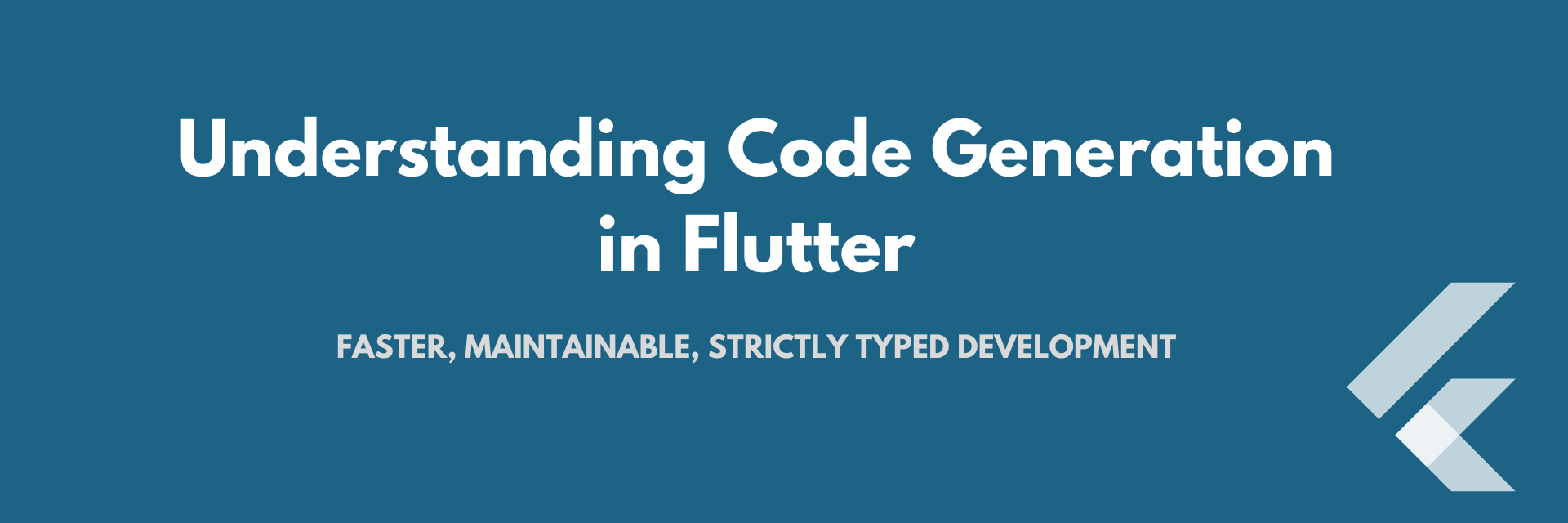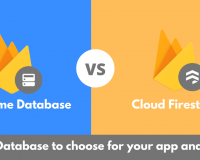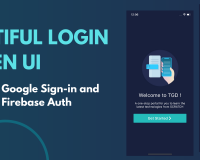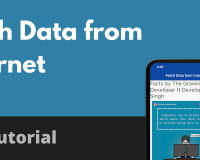Code Generation in Flutter | Faster, Maintainable Development
12 Feb 2025 | Saheb Singh
Code generation is becoming increasingly important in modern Flutter development. While it's possible to write all your code manually, this can lead to numerous challenges, especially when dealing with complex data structures and repetitive boilerplate code. Let's break down this topic into the following points:
- What is code generation?
- Why do we need code generation in Flutter?
- Examples of code generation in action
- Popular code generation tools for Flutter
What is code generation?
In simple terms, code generation is the process where tools automatically create source code based on annotations or other metadata in your codebase. Think of it as having a smart assistant that writes all the repetitive code for you, following best practices and patterns you define. Here's a simple example of how a code generation annotation looks:
@freezed
class User with _$User {
factory User({
required String name,
required String email,
}) = _User;
}
Why do we need code generation in Flutter?
This question naturally arises - why use code generation when we can write everything manually? Let's look at a practical example of a simple data class without code generation:
class User {
final String name;
final String email;
const User({
required this.name,
required this.email,
});
User copyWith({
String? name,
String? email,
}) {
return User(
name: name ?? this.name,
email: email ?? this.email,
);
}
@override
bool operator ==(Object other) {
if (identical(this, other)) return true;
return other is User &&
other.name == name &&
other.email == email;
}
@override
int get hashCode => name.hashCode ^ email.hashCode;
Map toJson() {
return {
'name': name,
'email': email,
};
}
factory User.fromJson(Map json) {
return User(
name: json['name'] as String,
email: json['email'] as String,
);
}
},>,>
As you can see, even for a simple class with just two properties, we need to write a lot of boilerplate code. Now imagine having multiple such classes with more properties - the amount of code to maintain grows exponentially.
Code Generation in Action
Let's see how we can achieve the same functionality using code generation with the Freezed package:
@freezed
class User with _$User {
factory User({
required String name,
required String email,
}) = _User;
factory User.fromJson(Map json) =>
_$UserFromJson(json);
},>
That's it! The code generator will automatically create all the necessary boilerplate code for you, including:
- copyWith methods for immutable updates
- equality comparisons and hash code implementations
- toString methods for debugging
- JSON serialization and deserialization
- Pattern matching capabilities
Popular Code Generation Tools
Here are some of the most widely used code generation tools in the Flutter ecosystem:
1. Freezed
A code generator for unions/pattern-matching/copy with functionality. It allows you to create immutable model classes with minimal code.
View on pub.dev
2. json_serializable
Provides Dart Build System builders for handling JSON by annotating Dart classes with a set of predetermined annotations.
View on pub.dev
3. injectable
A convenient code generator for get_it. It helps you implement dependency injection with minimal code.
View on pub.dev
4. auto_route
A declarative routing solution that uses code generation to simplify route setup.
View on pub.dev
Bonus: Getting Started with Code Generation
To start using code generation in your Flutter project, you'll need to add these dependencies to your pubspec.yaml:
dependencies:
freezed_annotation: ^2.4.1
dev_dependencies:
build_runner: ^2.4.6
freezed: ^2.4.2
That's it for this tutorial on code generation in Flutter! I hope you now understand why code generation is essential and how it can make your development process more efficient. Feel free to ask any questions about implementing code generation in your Flutter projects.





